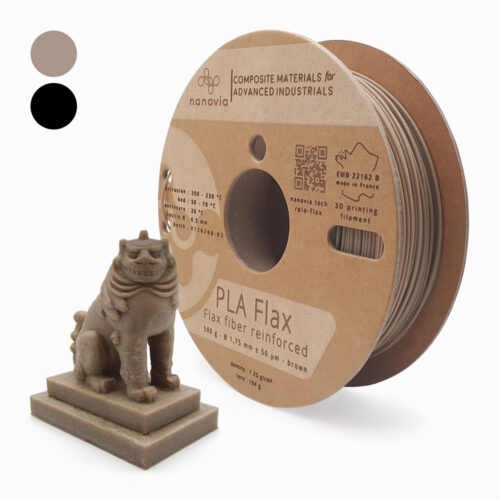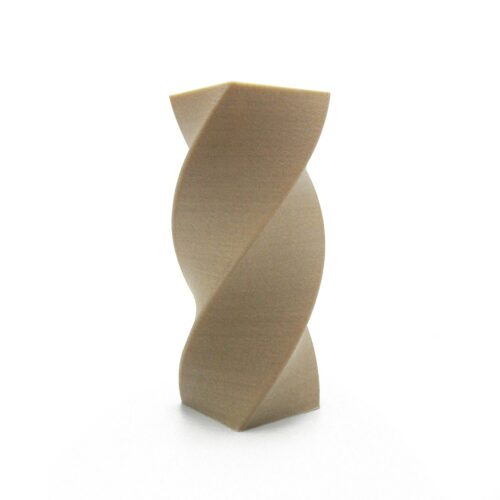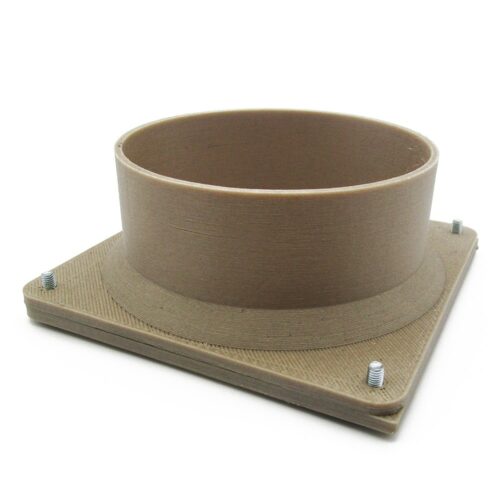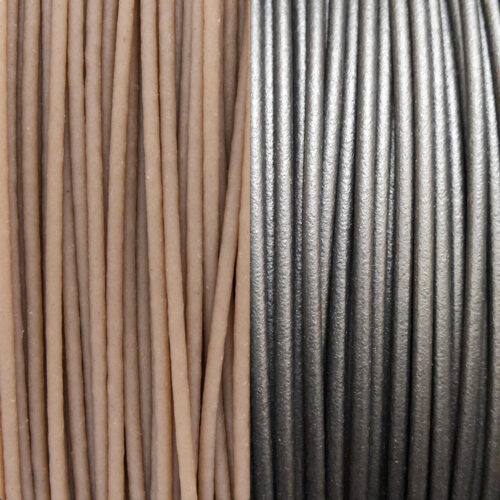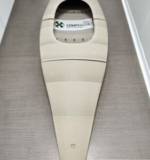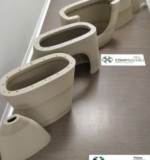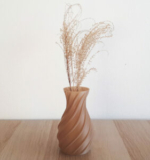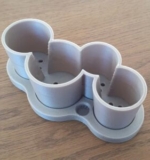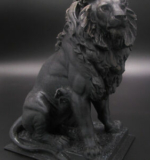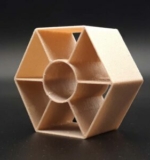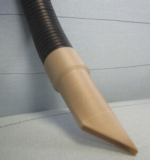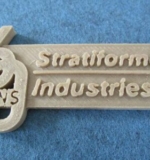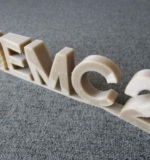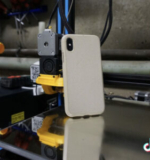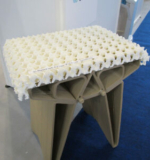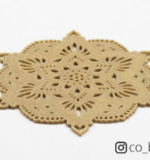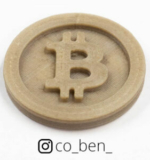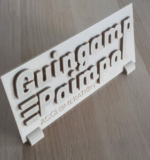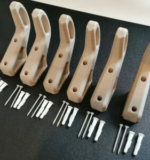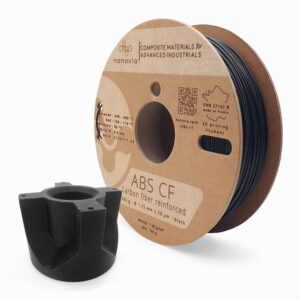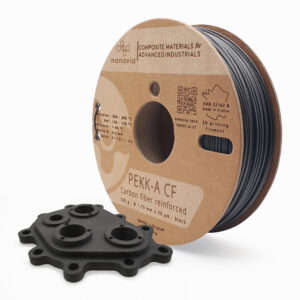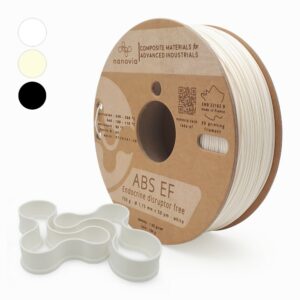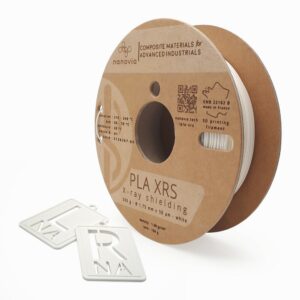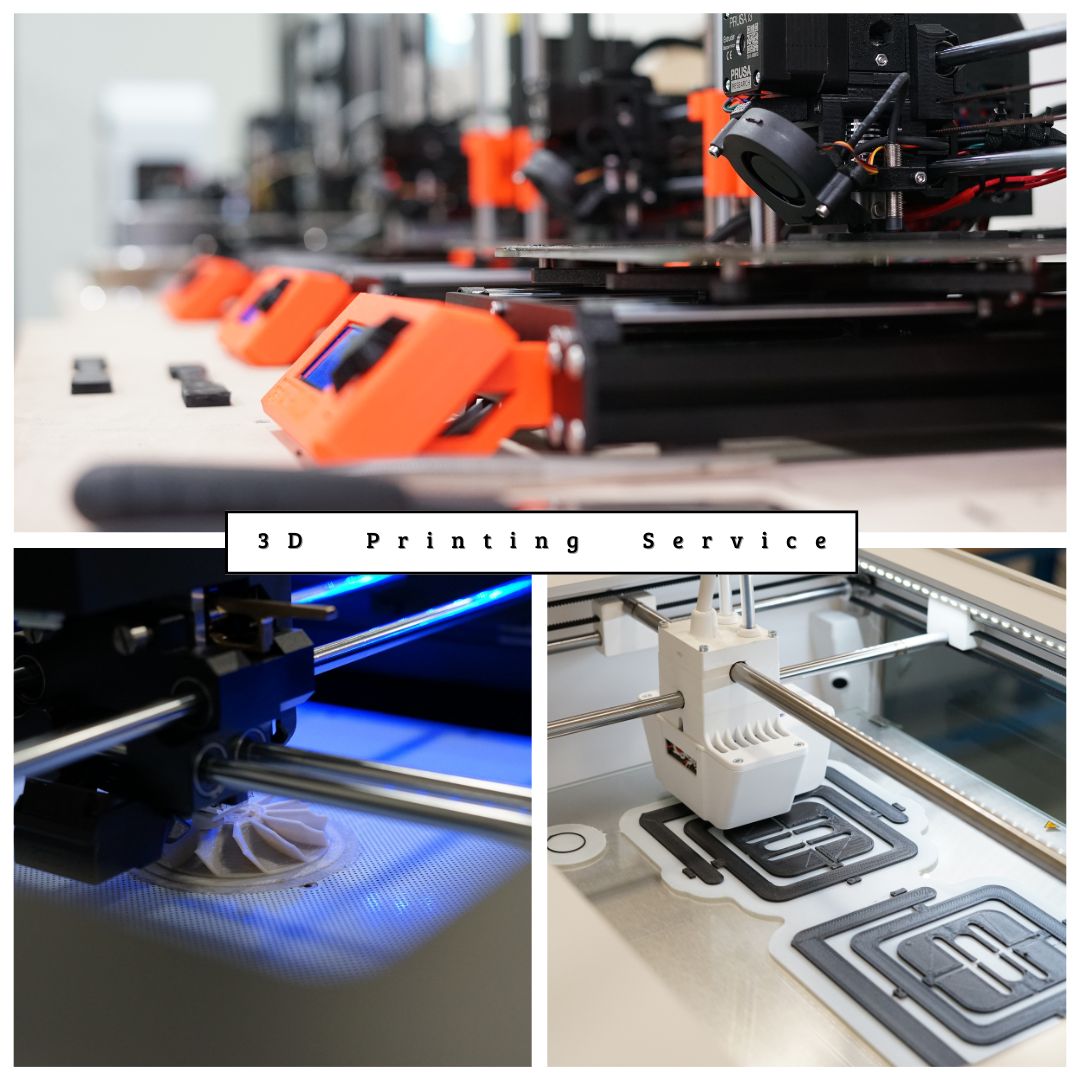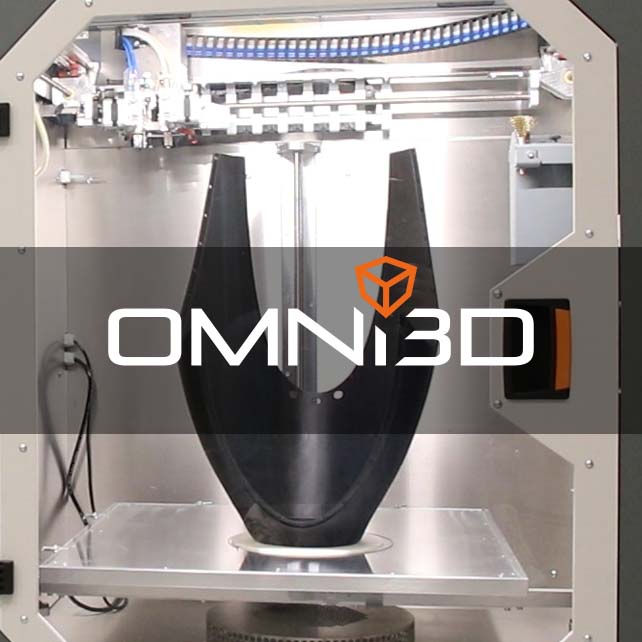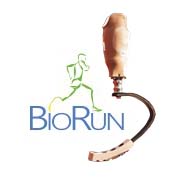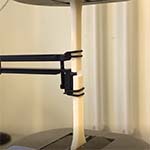Description
Properties3D Printing
Mechanical propertiesPhysical
Tensile
Test performed at 1mm/min on 3D printed test specimins at 0°, along with the tension stress.
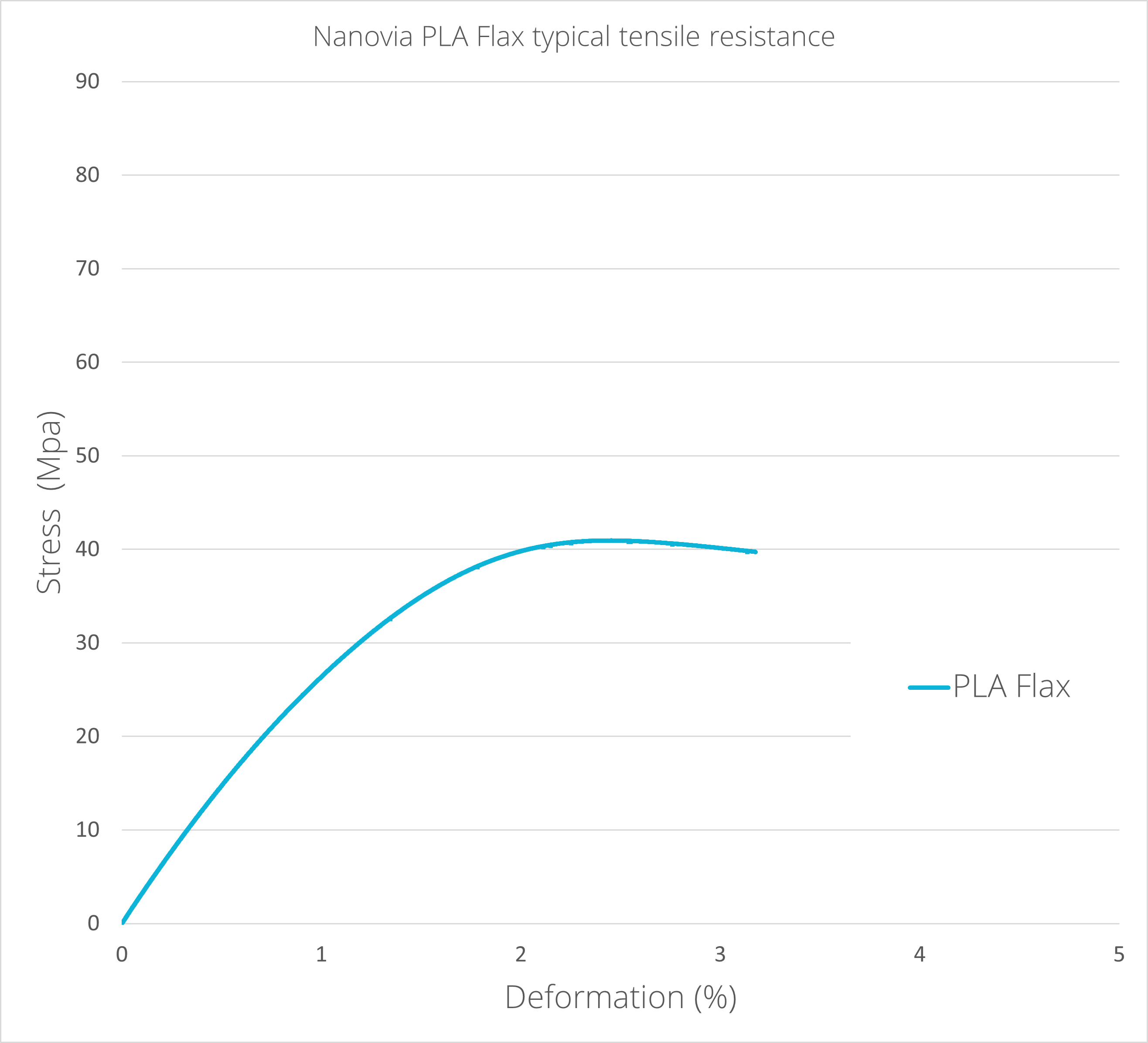
Thermal properties
DocumentationDownload the technical chart Download the security chartlast updated : 08/03/2023 Combining PLA’s ease of printing with flax fibers’ mechanical properties, Nanovia PLA Flax will allow you to create mechanical 3D prints with ease. 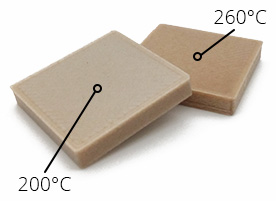
Alter Nanovia PLA Flax’s colour by changing the extrusion temperature of your printer. This biosourced composite 3D filament, certified endocrine disruptor free, can be browned by varying the printing temperature up to 260 °C. Nanovia’s PLA Flax’s fibers are harvested and transformed in France, specially selected for additive manufactoring. The organic look of this filament makes it ideal for decorative objects and toys. Advantages
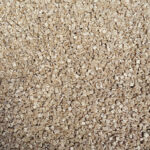
Nanovia PLA Flax is also available in pellet form for plastic extrusion and FGF 3D printing. User photosApplication recommendationsStorage
Post treatment
Health and safetyPrinting
Post treatment
Endocrine disruptor test: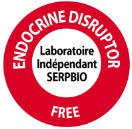
1 Method OEDT – SERPBIO Laboratory. Sample : NANOVIA 3D filament PLA Flax. Study: Measuring the activity of the human estrogenic receptors expressed in S. cerevisiae (SW303.1B) Every measurement is reproduced 3 times independently with the different contents of the tested sample Results: The obtained data shows that the tested product does not influence the measured activity Note on the ratio of circulating plasmic œstradiol: With menopaused women / with men: * [4×10-11M – 2×10-10M] with pre menopaused women (excluding ovulation): [1×10-10M – 5×10-10M] / with women (ovulation): [2×10 -9m] * a value is considered critical when it exceeds [2×10-11M]. CONCLUSION: The tested material can be considered absent of endocrine disruptors. CertificationsLinks
PackagingVacuum packed spools, with desicant, packed in individual boxes with engraved serial number. Other formats available on demand.

Example provided by NRHK in Japan, dedicated to the study and conservation of Japanese art, history, and culture. |
